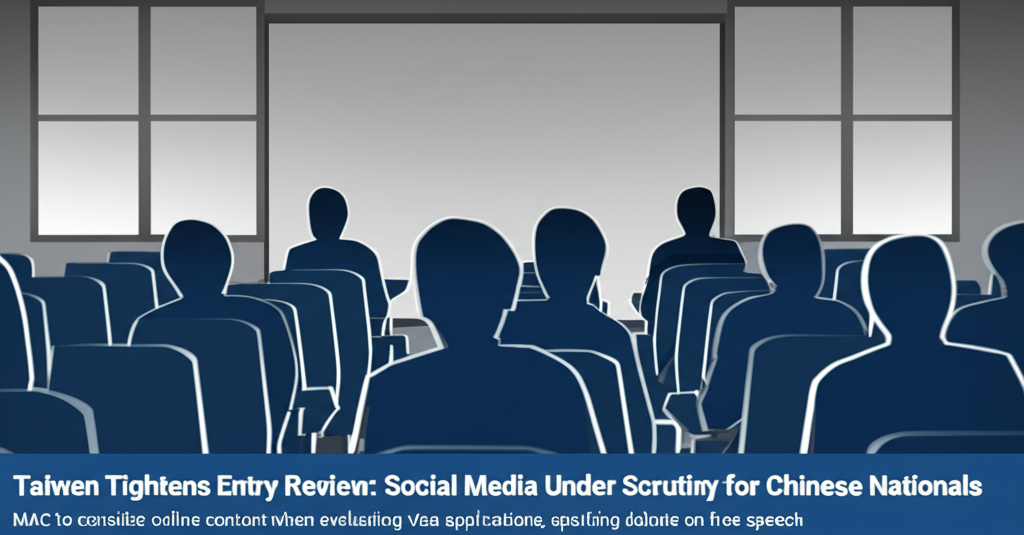Taiwan Tightens Entry Review: Social Media Under Scrutiny for Chinese Nationals
MAC to consider online content when evaluating visa applications, sparking debate on free speech.

Taipei, April 9th - Taiwan's Mainland Affairs Council (MAC) announced on Wednesday that it will incorporate social media content into its review process for entry applications from Chinese nationals seeking to visit the island. This decision reflects a growing focus on the potential influence of online activity on cross-strait relations.
MAC deputy head Liang Wen-chieh (梁文傑) confirmed during a legislative meeting that the council is examining past social media comments and posts made by Chinese applicants for short-term visits. The goal, according to Liang, is to screen for "remarks belittling Taiwan," although specific examples of such remarks were not provided.
Notably, the current policy exempts Chinese students from this social media content screening.
The announcement followed questions from Democratic Progressive Party (DPP) lawmaker Wang Yi-chuan (王義川), who advocated for stricter measures targeting Chinese nationals, citing concerns about "United Front" activities in Taiwan. Wang drew a parallel with U.S. policies that scrutinize social media content of visa applicants for national security purposes.
However, the move has also generated debate. DPP lawmaker Chuang Jui-hsiung (莊瑞雄) expressed reservations, cautioning against measures that could suppress freedom of speech under the guise of national security. Chuang emphasized the need for "very strict standards and very clear laws" if the government intends to punish individuals based on their political views, also calling on justice and judicial authorities to establish “clear legal provisions” to curb war propaganda. He warned that the absence of clear legal boundaries could lead to controversy and a chilling effect within Taiwanese society.
The meeting occurred in the context of the recent expulsion of three Chinese spouses by Taiwan’s National Immigration Agency. This action was due to their social media posts that advocated for China's "unification with Taiwan through military force."
Other Versions
Taiwán endurece el control de entrada: Las redes sociales, a examen para los ciudadanos chinos
Taïwan durcit l'examen des demandes d'entrée : Les médias sociaux font l'objet d'un examen minutieux pour les ressortissants chinois
Taiwan Memperketat Tinjauan Masuk: Media Sosial di Bawah Pengawasan untuk Warga Negara Tiongkok
Taiwan rende più severo il controllo degli ingressi: I social media sotto esame per i cittadini cinesi
台湾、入国審査を厳格化:ソーシャルメディアが中国人の入国審査対象に
대만, 입국 심사 강화: 중국 국적자에 대한 소셜 미디어 조사 실시
Pinahigpitan ng Taiwan ang Pagsusuri sa Pagpasok: Social Media Susuriin para sa mga Chinese Nationals
Тайвань ужесточает контроль за въездом: Социальные сети под пристальным вниманием китайских граждан
ไต้หวันเข้มงวดการตรวจสอบเข้าเมือง: โซเชียลมีเดียอยู่ภายใต้การพิจารณาสำหรับชาวจีน
Đài Loan Tăng Cường Kiểm Tra Nhập Cảnh: Mạng Xã Hội Bị Xem Xét Nghiêm Ngặt Đối Với Công Dân Trung Quốc

